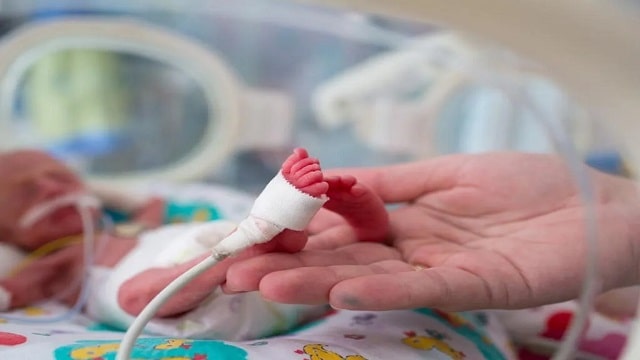“Women who eat unhealthy foods before pregnancy are 50 percent more likely to have a premature birth. On the other hand, lack of nutritional intake during pregnancy also poses a risk of premature birth.”
Premature birth is a serious problem that needs to be watched out for during pregnancy. This is because babies born prematurely do not yet have optimal organ function. This can ultimately increase the risk of infant death.
On the other hand, even if premature babies survive after birth, they are also at risk of experiencing a number of health problems. Examples include neurodevelopmental disabilities, experiencing mental disorders when growing up, and the risk of brain and heart problems.
However, premature birth during pregnancy can be prevented in several ways. One of them is by implementing a healthy diet during pregnancy. This aims to ensure that balanced nutritional intake can always be met.
Why Balanced Nutrition is Important in Pregnancy
Women have different nutritional needs throughout their lives. Especially before, during pregnancy, and while breastfeeding. Ensuring adequate nutrient intake during these three periods is fundamental to the survival and well-being of both mother and child.
But in many parts of the world, women’s nutritional status before and during pregnancy is inadequate. In fact, according to research conducted by the University of Adelaide in 2014, this is risky. Because women who consume unhealthy foods before pregnancy are 50 percent more likely to give birth prematurely. Compared to those who follow a healthy diet.
On the other hand, poor diet can cause a lack of important nutrients during pregnancy. For example, iodine, iron, folate, calcium, and zinc. The lack of these nutrients can cause anemia, pre-eclampsia, bleeding, premature birth, and even threaten the safety of the pregnant mother’s life.
This condition can also lead to stillbirth, low birth weight, and developmental delays in children. UNICEF estimates that low birth weight affects more than 20 million newborns each year.
Recommended Diet
Consuming healthy foods can provide the necessary intake of essential nutrients to support optimal baby growth and development. Because in addition to preventing premature birth, this is also related to a number of positive things. Starting from supporting the development of the baby’s brain, supporting a healthy birth weight, to reducing the risk of many birth defects. Basically, pregnant women only need to consume about 300 calories more per day.
Meanwhile, here are recommendations for foods that need to be consumed during pregnancy:
1. Vegetables
Mothers can consume carrots, sweet potatoes, pumpkin, spinach, green vegetables, tomatoes and red peppers. Some of these vegetables can be good sources of vitamin A, folate, and potassium.
2. Fruits
A number of fruits such as cantaloupe, melon, mango, banana, apricot, and orange can be consumed as a source of potassium.
3. Milk and Milk Products
Starting from fat-free or low-fat yogurt, skim milk or soy milk can be a source of calcium, potassium, and vitamins A and D.
4. Fortified Foods
Fortified foods such as ready-to-eat cereals or cooked cereals can be a source of iron and folic acid.
5. Protein
There are several sources of protein that are good for pregnancy. Starting from beans, nuts, lean beef, chicken, or fatty fish such as salmon, or sardines.
6. Carbohydrates
If possible, eat complex carbohydrates, such as whole wheat bread and pasta, corn, and brown rice. In addition, pregnant women are also advised to limit their consumption of simple carbohydrates such as white bread to potato chips.
That is the explanation of balanced nutritional intake that can prevent premature birth. If you still have questions about pregnancy or experience medical complaints, contact a doctor immediately.
